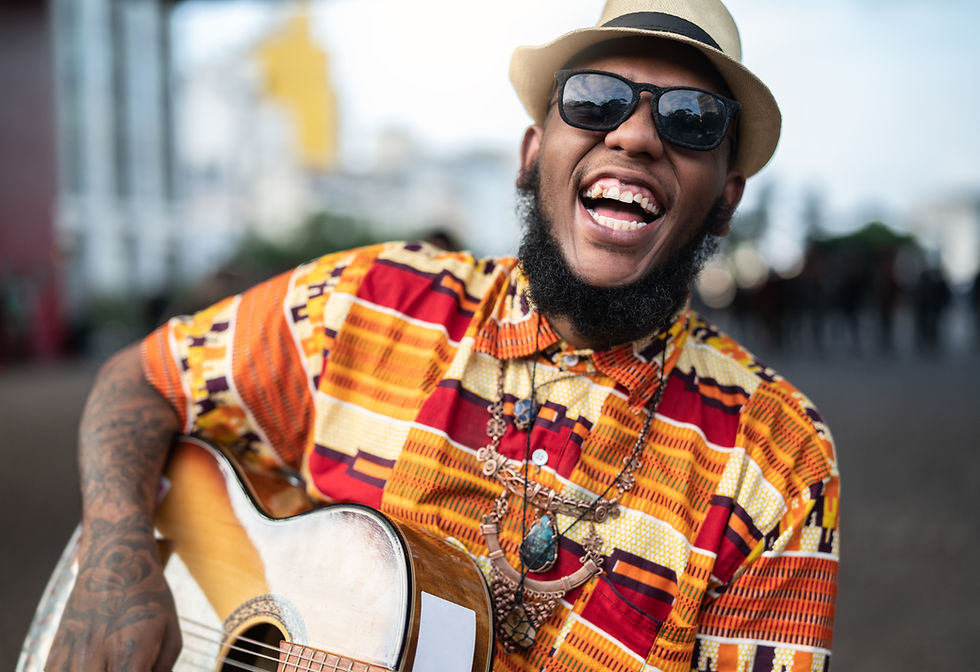B E Assertive
- Candace The Happy Musician

- Jul 24, 2023
- 3 min read
Updated: Jul 25, 2023
How to be assertive even when you don't feel confident

When we think of musicians, we often associate them with talent, creativity, and the ability to express themselves through their music. But behind the scenes, many musicians face a common struggle – assertiveness. It may come as a surprise, but even the most talented musicians can struggle with assertiveness, particularly when it comes to advocating for themselves. But fear not, because assertiveness is a skill that can be learned and developed over time, regardless of how confident you may feel.
What Is Assertiveness? Being assertive means having the ability to confidently communicate what you want or need while also respecting the needs of others
For musicians, assertiveness starts with knowing your worth. It means recognizing and valuing your unique musical talent and contribution. Whether you are a singer, a guitarist, or a drummer, each musician brings something special to the table. Embracing your individuality and reminding yourself that you have something important to offer can boost your confidence and make it easier to assert yourself.
I was not an assertive musician, in fact, it took me getting angry to be assertive. (ugh, so exhausting) I don't recommend it. I did eventually learn to be assertive in a healthy way.
"To be passive is to let others decide for you. To be aggressive is to decide for others. To be assertive is to decide for yourself. And to trust that there is enough, that you are enough.
So how can musicians be assertive even when they don't feel confident? Firstly, it's important to realize that assertiveness is not about being aggressive or confrontational. It's about advocating for yourself in a clear and respectful manner. Start by setting clear boundaries and expectations for yourself and others. If a venue offers you a gig with unfavorable conditions, politely explain your needs and negotiate for a more equitable arrangement. Remember, you have the right to speak up for yourself and your worth as a musician.
I learned to ASK QUESTIONS. It's scary asking questions but nine times out of ten everyone is thinking it, so I swallow my nervousness, and think about the potential consequences of not asking.
I ask myself: What is needed? Is this the best course of action? Is this going to get the result I need?
I ask others: What is the plan? What is the intended result? Can you help me better understand?
I learned to MAKE FRIENDS WITH NO. saying no is like learning music, the more you practice saying no, the easier it gets. One of the biggest factors that led to my burnout was the fear of saying no. It's important to push through that uncomfortable feeling that hits when we should say no. If you can't say no try "let me think about" "I'll get back to you" or "I want to say yes, but I don't think I can" then prepare yourself to say no.
I learned to SEE IT THEIR WAY. Important components of assertiveness are empathy and respect for others' opinions. Showing empathy and respect is a great way to be assertive. people feel heard and are more likely to respect your needs and opinions.
Assertiveness is the key to standing up for oneself, expressing ideas effectively, and advocating for fair treatment. So, to all you musicians out there, remember that being assertive is not only important for your craft, but also for your journey as an artist.
Candace- The happy Musician Coach





Comments